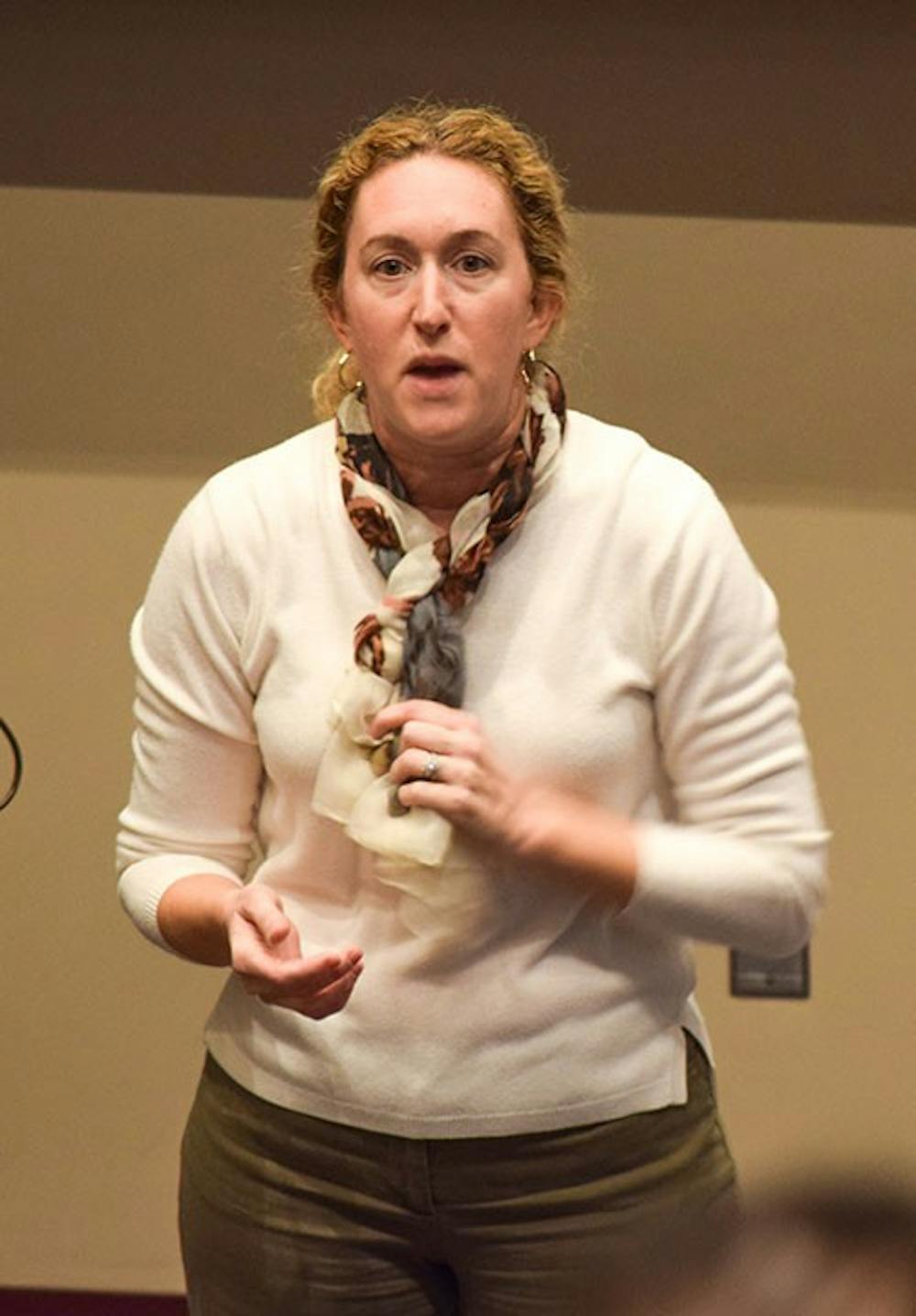“The Stigma Project” was presented at Shippensburg University on Thursday to educate, spread knowledge and eliminate social stigmas surrounding people with disabilities.
“The Stigma Project,” a documentary that discusses stigmas and stereotypes of people with disabilities, was presented in the Grove Forum by professor Allison Carey, director of the disability studies minor, and professor Dara Bourassa, director of gerontology.
The event began with the presentation of “What Are You Thinking?,” an informative documentary that discusses current social stigmas about disabilities and the importance of education on the topic. It began with an interview of people stating current stereotypes, including the misconception that people with disabilities are abnormal.
The documentary touched on several other societal issues in regard to disabilities, but it mainly focused on the lack of knowledge in our community. While there are many negative stigmas, positive stigmas can be just as hurtful.
The term “inspirational porn” was used in the film, which means people celebrate others for simply living their everyday lives. While some of these celebrations were held with good intentions, many of the people featured in the documentary who live with disabilities said they were never asked to be celebrated for getting up and going to work in the morning, because they are just doing what everyone else is doing.
The documentary ended by explaining the best way to gain knowledge about people with disabilities is by asking the person about themselves. Instead of assuming what they need or what, the documentary recommended asking them and getting to know each individual as a person.
Following the documentary, a panel discussion was held that included SU students Kaz Sortino and Nathan Helwig, SU alumna Angie Pickle and two military veterans who shared their personal experiences with stereotypes in today’s society.
The event ended with the question “How can society begin to educate students at a younger age?” Sortino said the best way to do so was to start the conversation.
“People can’t accept something they don’t understand,” Sortino said. “It is important to be appropriately inquisitive.”




The Slate welcomes thoughtful discussion on all of our stories, but please keep comments civil and on-topic. Read our full guidelines here.